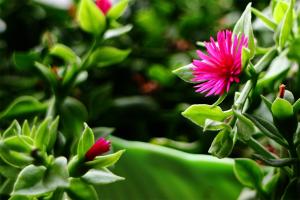Does Tap Water Hurt Plants?
Tap water is a readily available source of water for most plants. However, many gardeners have concerns over whether using tap water to water their plants can harm them. In this article, we will explore the effects of tap water on plants and whether it has the potential to harm them.
What is Tap Water?
Tap water is the most commonly used water source that comes straight from the municipal water supply. It is treated and disinfected to remove impurities and potential health hazards such as bacteria and viruses. Tap water may contain trace amounts of minerals including calcium, magnesium, chlorine, and fluoride. However, depending on the region, tap water may also contain high levels of pollutants such as lead, copper, and other heavy metals.
Can Tap Water Harm Plants?
Overall, tap water is considered safe for most plants. Plants can tolerate trace amounts of minerals and other compounds found in tap water. In fact, the minerals can even provide nutrients to the plants which can be beneficial for their growth. However, tap water that contains high levels of pollutants such as lead or copper can harm plants by affecting their growth and causing damage to their leaves and roots. Additionally, the pH level of the water can affect plant growth, so it’s important to monitor the pH level of your tap water before using it to water your plants.
How to Ensure Tap Water is Safe for Plants
If you are concerned that the tap water in your area may contain high levels of pollutants or minerals that could be harmful to your plants, there are a few steps you can take to ensure it’s safe to use:
1. Check your municipal water report: Your water utility company is required by law to provide an annual water report. It contains information on the source of your drinking water, contaminants that could be present, and the levels of these contaminants. This can give you an idea of what is in your tap water.
2. Test the pH level: You can purchase a pH testing kit from a garden center or online. Test the pH level of your tap water to ensure it falls within the acceptable range for your plants (usually between 6.0-7.5).
3. Use a water filter: Consider using a water filter to remove any impurities from your tap water. This can help ensure that your plants are only getting clean water.
Alternatives to Tap Water
If you are still concerned about using tap water to water your plants, there are alternatives you can use:
1. Rainwater: Collecting rainwater can be a great way to ensure that your plants are getting clean water. Rainwater is typically free of pollutants and minerals that can harm plants.
2. Well water: If you have access to well water, it can be a good alternative to tap water. However, it’s important to test well water to ensure it’s safe for your plants.
3. Bottled water: Bottled water can also be used to water plants. However, it can be expensive and not always environmentally friendly.
Conclusion
Overall, tap water is generally safe for most plants. However, it’s important to monitor the quality of your tap water to ensure that it doesn’t contain high levels of pollutants or minerals that could harm your plants. If you are still concerned, there are alternative water sources you can use such as rainwater, well water, or bottled water.

 how many times do yo...
how many times do yo... how many planted tre...
how many planted tre... how many pine trees ...
how many pine trees ... how many pecan trees...
how many pecan trees... how many plants comp...
how many plants comp... how many plants can ...
how many plants can ... how many plants and ...
how many plants and ... how many pepper plan...
how many pepper plan...
































